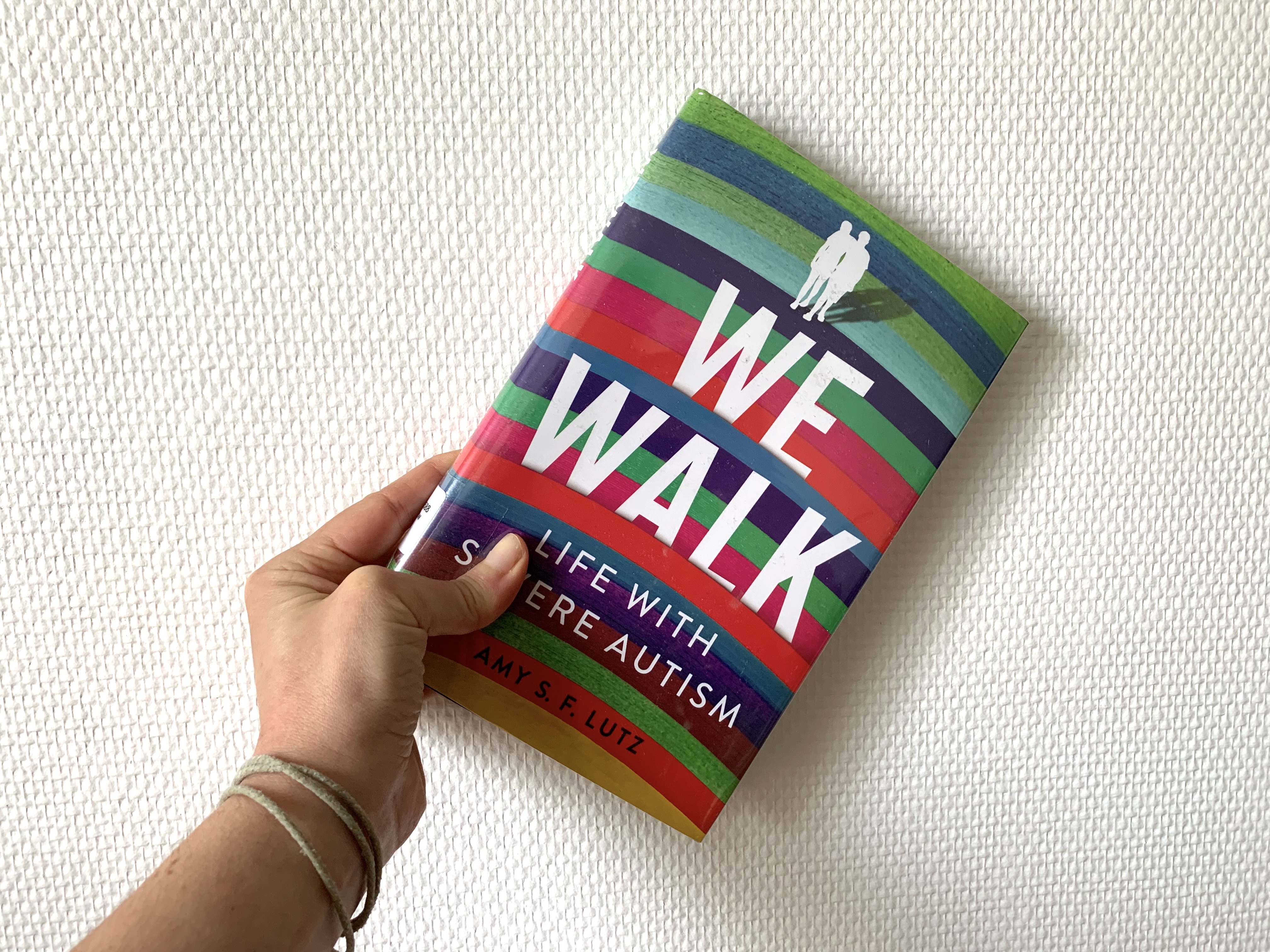When I was in the States over Christmas, my aunt and I got pretty into watching Dating on the Spectrum, an Australian show detailing the experiences of several people with autism as they attempt to find love. It’s heartwarming and funny and human, but it also paved the way for a lot of conversations with my aunt, a special ed teacher.
As we watched the show, we spoke a lot about the fact that while it was exciting to see these individuals advocating for themselves, this wouldn’t be possible for many people she teaches.
I found myself thinking about these conversations a lot as I read We Walk: Life with Severe Autism. The collection of essays from Amy S. F. Lutz explores her experiences as the mother of Jonah, a young man with autism who, she asserts throughout the book, cannot advocate for himself. While Jonah is verbal, she explains, he lacks the ability for abstract thought. Identifying what he needs, she says, is just not within his purview.
The essays range from touching explorations of the unique bond between mother and son to philosophical musings on the true meaning of friendship or happiness to more policy-driven pieces relating to the debates currently surging on the disability rights landscape regarding self-actualization. Lutz manages a balanced viewpoint while also offering a perspective that is… let’s say… unpopular these days. Notably, she explores why the assimilation of varying degrees of autism on one spectrum of diagnosis may actually make it more difficult for people like her son to glean the care and aid he needs, and how people who can identify their own needs claiming autistic individuals need to speak for themselves negates the very real impairments that make this impossible for individuals like Jonah.
Autism is not something that I have much first-hand experience with, and I wholly enjoyed being invited into Lutz’s day-to-day life and perspective.
